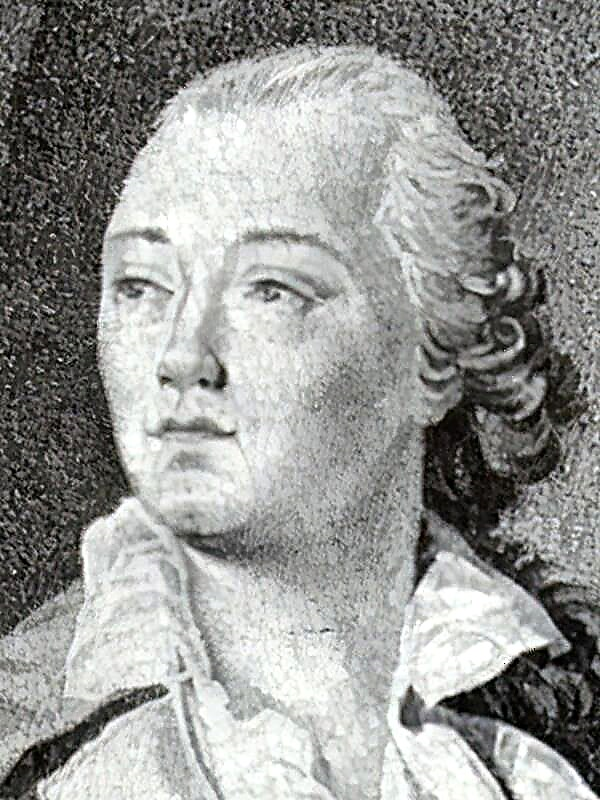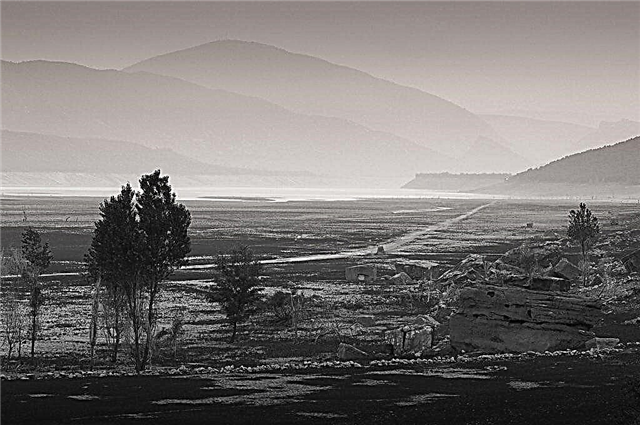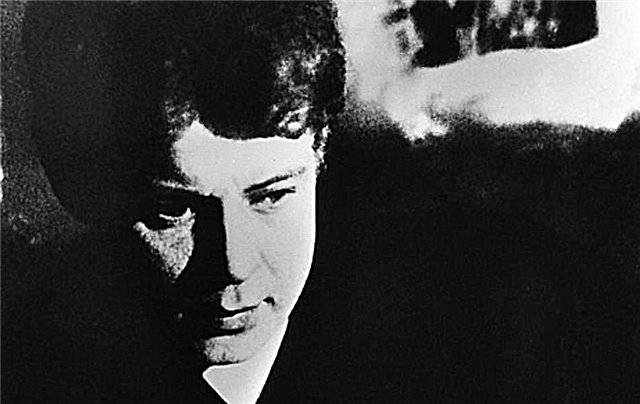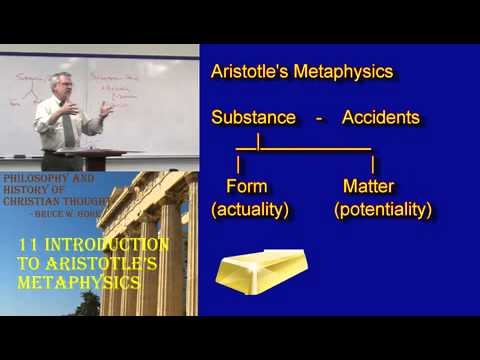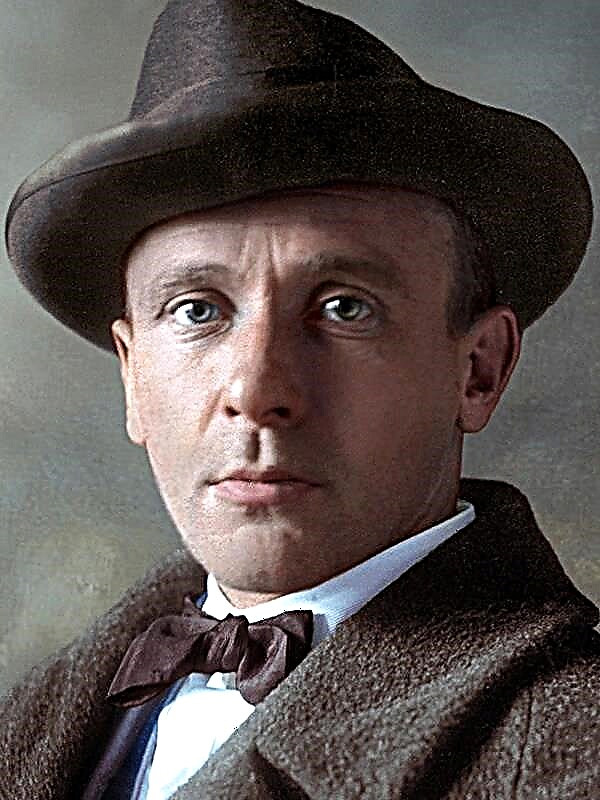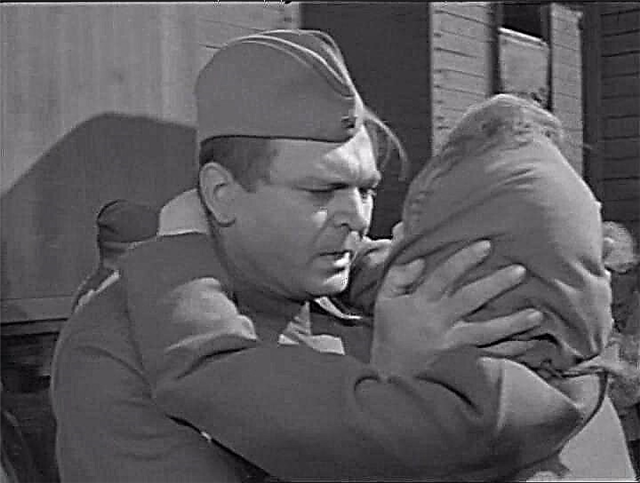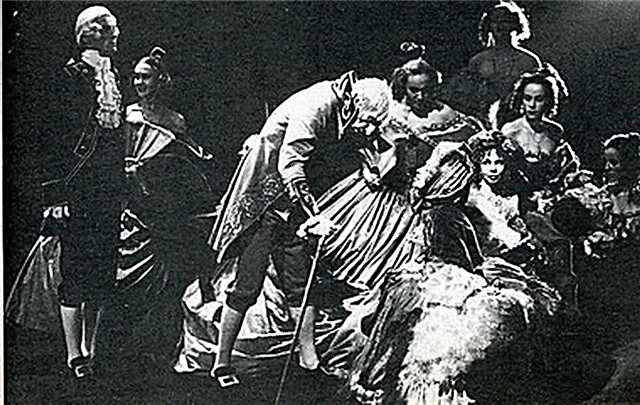Comparative Biographies consists of 23 pairs of biographies: one Greek, one Roman, beginning with the legendary kings Theseus and Romulus and ending with Caesar and Anthony, which Plutarch had heard of from living witnesses. For historians, this is a precious source of information; but Plutarch did not write for historians. He wanted people to learn to live by the example of historical persons; therefore, he combined them in pairs according to the similarity of characters and actions, and at the end of each pair placed a comparison: who was better in what and worse. For the modern reader, these are the most boring sections, but for Plutarch they were the main ones. Here is how it looked.
Aristide and Cato Senior
Aristide (d. Approx. 467 BC) was an Athenian statesman during the Greco-Persian wars. Under the Marathon, he was one of the military leaders, but he refused command, passing it to the leader, whose plan he considered the best. Under Salamis, in the decisive battle against Xerxes, he recaptured the Persians from the island on which a monument was later erected in honor of this battle. Under Plathe, he ruled over all the Athenian units in the allied Greek army. He had the nickname Just. His rival was Themistocles; disagreements were such that Aristide said: "It would be best for the Athenians to take and throw me and Themistocles into the abyss." It came to ostracism, the “trial of shards”: everyone wrote on the shard the name of the one whom he considered dangerous for the fatherland. An illiterate man approached Aristide: "Write here for me: Aristide." - “Do you know him?” “No, but tired of hearing: Just and Fair.” Aristide wrote, and he had to. go into exile. However, then, in front of Salamis, he himself came to Themistocles and said: “Let’s throw discord, we have one thing in common: you better know how to command, and I will be your adviser.” After the victory, beating off the Greek cities from the Persians, he, by his courtesy, encouraged them to be friends with Athens, and not with Sparta. From this formed a great maritime alliance; Aristide traveled around all the cities and distributed the allied contributions between them so fairly that everyone was satisfied. Most of all, they wondered that he did not take bribes and returned from the detour as poor as he was. When he died, he left no money even for the funeral; the Athenians buried him at public expense, and his daughters were given in marriage with a dowry from the treasury.
Cato the Elder (234–149 BC) in his youth participated in the Second Punic War of Rome with Carthage, in his mature years he fought in Spain against the Asian king Antiochus in Greece, and died on the eve of the Third Punic War, to which he himself stubbornly called: he ended each speech with the words: "And besides, it is necessary to destroy Carthage." He was from an obscene family and only by his own merits reached the highest public position - censorship: in Rome this was a rarity. Cato was proud of this and in every speech he insisted on his merits; however, when he was asked why the statue had not yet been erected, he said: “Let them ask why they did not erect it, why they erected it.” The censor had to follow public morals: Cato struggled with luxury, expelled Greek teachers from Rome for the fact that their lessons undermined the harsh customs of their ancestors, expelled the senator from the senate for kissing his wife in public. He said: "Do not survive the city, where they pay more for red fish than for a working ox." He himself set an example in his harsh way of life: he worked in the fields, ate and drank the same things as his laborers, raised his son himself, wrote for him in large letters the history of Rome, and a book of tips on agriculture (“how to get rich”), and much more.He had many enemies, including the best Roman commander Scipio, the winner of Carthaginian Hannibal; he overpowered everyone, and Scipio accused him of exceeding power and an unacceptable love of Greek scholarship, and he retired to his estate. Like Nestor, he survived three generations; already in his old age, fighting off attacks in court, he said: “It's hard when life is lived with some, but you have to justify yourself before others.”
Juxtaposition. In the fight against rivals, Cato showed himself better than Aristide. Aristide had to go into exile, and Cato argued with rivals in the courts until old age and always came out victorious. At the same time, Aristide was a serious rival only to Themistocles, a man of low kind, and Cato had to break into politics when the authorities firmly stood up to know, and yet he reached the goal. - In the fight against external enemies, Aristide fought during the Marathon, and under Salamis, and under the Plateaus, but everywhere in the second roles, and Cato himself won victories in both Spain and Greece. However, the enemies with whom Cato fought did not compare with the terrifying hordes of Xerxes. - Aristide died in poverty, and this is not good: a person should strive for prosperity in his house, then the state will be in abundance. Cato proved himself to be an excellent host, and that is why he is better. On the other hand, philosophers knowingly say: “Only the gods do not know the need; the less man needs, the closer he is to the gods. " In this case, poverty, which does not come from squandering, but from temperance of desires, like Aristide’s, is better than wealth, even like that of Cato: is it not a contradiction that Cato teaches you how to get rich, but boasts moderation? - Aristide was modest, others praised him, Cato was proud of his merits and remembered them in all his speeches; this is not good. Aristide was unenvious, during the war he honestly helped his ill-wisher Themistocles. Cato, out of rivalry with Scipio, almost prevented his victory over Hannibal in Africa, and then forced this great man to retire and retire from Rome; this is all the more bad.
Agesilaus and Pompey
Agesilaus (399–360 BC) was the Spartan king, an example of the ancient valor of the time of the beginning of the decline of morals. He was small, chrome, fast and unpretentious; he was called to listen to the singer, singing like a nightingale, he replied: "I heard a real nightingale." On campaigns, he lived in plain sight, and slept in temples: "What the people do not see, let the gods see it." The soldiers loved him so much that the government reprimanded him: "They love you more than the fatherland." He was enthroned by the famous commander Lysander, declaring his rival the illegitimate son of the former king; Lysander hoped to rule himself from behind Agesilaus, but he quickly took power into his own hands. Agesilaus twice saved Sparta. The first time he went to war on Persia and would conquer it, as Alexander later, but received an order to return, because all of Greece rebelled against Sparta. He returned and hit the rebels in the rear; the war dragged on, but Sparta resisted. For the second time, the Spartans were completely defeated by the Thebans and approached the city itself; Agesilaus with a small detachment took up the defense, and the Thebans did not dare to attack. According to ancient law, soldiers who fled from the enemy, shamefully lost their civil rights; observing this law, Sparta would have remained without citizens. Agesilaus declared: “Let the law sleep today, and wake up tomorrow” - and with this I got out of the situation. Money was needed for the war, Agesilaus went to earn it overseas: there Egypt rebelled against Persia, and he was called to be the leader. In Egypt, he liked hard cane most of all: from it one could weave even more modest wreaths than in Sparta. A split began between the rebels, Agesilaus joined those who paid the most: "I’m fighting not for Egypt, but for Sparta’s profit." Here he died; his body was embalmed and taken to his homeland.
Pompey (106–48 BC)e.) exalted in the First Roman Civil War under the dictator Sulla, was the strongest man in Rome between the First and Second Civil Wars, and died in the Second Civil War against Caesar. He defeated the rebels in Africa and Spain, Spartacus in Italy, pirates across the Mediterranean Sea, King Mithridates in Asia Minor, King Tigran in Armenia, King Aristobulus in Jerusalem and celebrated three triumphs over three parts of the world. He said that he received every position earlier than he expected, and laid down earlier than others expected. He was brave and simple; at sixty, he was engaged in combat exercises alongside his rank-and-file soldiers. In Athens, on the arch in his honor was the inscription: "The more you are a person, the more you are a god." But he was too direct to be a politician. The Senate was afraid and did not trust him; he made an alliance with the politicians Crassus and Caesar against the Senate. He died, and Caesar gained strength, conquered Gaul and began to threaten both the Senate and Pompey, Pompeii did not dare to wage a civil war in Italy - he gathered troops in Greece. Caesar chased after him; Pompeii could surround his troops and starve to death, but chose to give battle. It was then that Caesar exclaimed: “Finally, I will fight not with hunger and deprivation, but with people!” Under Farsal, Caesar defeated Pompey utterly. Pompey lost heart; the Greek philosopher told him: “Are you sure you would have used the victory better than Caesar?” Pompey fled on a ship across the sea to the Egyptian king. The Alexandrian nobles decided that Caesar was stronger, and killed Pompey on the shore during the landing. When Caesar arrived in Alexandria, they brought him the head and seal of Pompey. Caesar wept and ordered the execution of the killers.
Juxtaposition. Pompeii came to power only by his own merits, while Agesilaus - not without cunning, declaring the other heir unlawful, Pompey supported Sulla, Agesilaus - Lysander, but Pompey Sulle always paid honors, Agesilaus Lysander unhappily removed, - in all this Pompey's behavior was much more praiseworthy . However, Agesilaus discovered state wisdom more than Pompey did, for example, when he interrupted the victorious campaign on orders and returned to save the fatherland, or when no one knew what to do with the defeated, and he came up with the idea that “the laws are awake for one day.” The victories of Pompey over Mithridates and other kings, of course, are much greater than the victories of Agesilaus over the small Greek militias. And Pompey knew how to show mercy to the defeated better - he settled the pirates in cities and villages, and he made Tigrana his ally; Agesilaus was much more vengeful. However, in his main war, Agesilaus showed more composure and more courage than Pompey. He was not afraid of reproaches for returning from Persia without victory, and did not hesitate to go with the small army to defend Sparta from invading enemies. But Pompey first left Rome in front of the small forces of Caesar, and then in Greece he was ashamed to delay time and took up the battle when it was beneficial not to him, but to his opponent. Both ended their lives in Egypt, but Pompey sailed there by necessity, Agesilaus out of self-interest, and Pompey fell, deceived by the enemies, Agesilaus himself deceived his friends: here again Pompey deserves more sympathy.
Demosthenes and Cicero
Demosthenes (384–322 BC) was the greatest Athenian orator. Being naturally tongue-tied and weak-voiced, he trained himself by making speeches with pebbles in his mouth, or on the shore of a noisy sea, or climbing a mountain; for these exercises, he went away to live in a cave for a long time, and in order to be ashamed to return to people ahead of time, he shaved himself half a head. Speaking in a public assembly, he said:
“Athenians, you will have an adviser in me, even if you do not want to, but never a flatterer, even if you want.” Other speakers were given bribes to speak in a pleasing manner to the bribe taker; Demosthenes was given bribes so that he was only silent.He was asked: "Why are you silent?" - he answered: “I have a fever”; joked over him: "Gold Rush!" Tsar Philip of Macedon attacked Greece, Demosthenes made a miracle - with his speeches rallied the unyielding Greek cities against him. Philip managed to defeat the Greeks in battle, but gloomy at the thought that Demosthenes in one speech could destroy everything that the king achieved by victories for many years. The Persian king considered Demosthenes as his main ally against Philip and sent him a lot of gold, Demosthenes took: "He was best able to praise the valor of his ancestors, but did not know how to imitate them." His enemies, having caught him in bribery, were sent into exile; leaving, he exclaimed: “O Athena, why do you love the three most evil animals so much: an owl, a snake and a people?” After the death of Alexander the Great, Demosthenes again raised the Greeks to the war against the Macedonians, the Greeks were again defeated, Demosthenes was saved in the temple. The Macedonians ordered him to leave, he said: "Now, I will only write a will"; took out writing tablets, thoughtfully brought a stylus to his lips and fell dead: in a stylus he carried poison with him. On the statue in his honor it was written: “If, Demosthenes, your strength was equal to your mind, the Macedonians would never have Greece forever.”
Cicero (106–43 BC) was the greatest Roman orator. When he studied eloquence in conquered Greece, his teacher exclaimed: “Alas, the last glory of Greece goes to the Romans!” He regarded Demosthenes as a model for all speakers; When asked which of Demosthenes’s speeches was the best, he answered: "The longest." Like Cato the Elder once, he is from an obscene family, only thanks to his oratory talent he has gone from the lowest state posts to the highest. He had to act as a defender and a prosecutor; when he was told: “You killed people more by accusations than you saved by defenses,” he answered: “So, I was more honest than eloquent.” Each position in Rome was held for a year, and then a year was supposed to govern some province; usually governors used it for profit, Cicero never. In the year that Cicero was consul and headed the state, Catilina's conspiracy against the Roman Republic was discovered, but there was no direct evidence against Catilina; however, Cicero made such an accusatory speech against him that he fled from Rome, and his accomplices were executed by order of Cicero. Then the enemies took advantage of this to expel Cicero from Rome; a year later he returned, but his influence was weakened, he was increasingly moving away from business on the estate and wrote essays on philosophy and politics. When Caesar came to power, Cicero did not have the spirit to fight him; but when, after the assassination of Caesar, Anthony began to seize power, Cicero last rushed into the struggle, and his speeches against Anthony were as famous as the speeches of Demosthenes against Philip. But power was on Anthony's side; Cicero had to flee, he was overtaken and killed. Anthony put his severed head on the oratory platform of the Roman Forum, and the Romans were horrified.
Juxtaposition. Which of the two speakers was more talented - Plutarch says about this, he does not dare to judge: this is only possible for someone who is equally fluent in Latin and Greek. The main advantage of the speeches of Demosthenes was considered weightiness and strength, the speeches of Cicero - flexibility and lightness; Enemies called Demosthenes an obese, Cicero - a joker. Of these two extremes, perhaps Demosfenova is still better. In addition, Demosthenes, if he praised himself, was unobtrusive, but Cicero was vain to the ridiculous. But Demosthenes was an orator, and only an orator, and Cicero left many works both in philosophy, and in politics, and in rhetoric: this versatility, of course, is a great merit. Both had a tremendous political influence in their speeches; but Demosthenes did not hold high posts and did not pass, so to speak, tests of power, and Cicero was a consul and brilliantly showed himself, suppressing the plot of Catilina.What undoubtedly Cicero surpassed Demosthenes was disinterestedness: he did not take bribes in the provinces or gifts from friends; Demosthenes obviously received money from the Persian king and was exiled for bribe-taking. But in exile, Demosthenes behaved better than Cicero: he continued to unite the Greeks in the fight against Philip and succeeded in many ways, while Cicero lost heart, indulged in idleness and then did not dare to resist tyranny for a long time. In the same way, Demosthenes accepted the death more worthily. Cicero, although an old man, was afraid of death and darted to flee from the killers, Demosthenes himself took the poison, as befits a courageous person.
Demetrius and Anthony
Demetrius Poliorket (336–283 BC) was the son of Antigonus One-eyed, the oldest and strongest of the generals Alexander the Great. When, after the death of Alexander, wars began for power between his commanders, Antigonus conquered Asia Minor and Syria, and Demetrius sent to recapture Greece from Macedonian rule. He brought bread to the hungry Athens; making a speech about this, he made a mistake in the language, he was corrected, he exclaimed: “For this amendment I give you another five thousand measures of bread!” He was proclaimed god, settled in the temple of Athens, and he arranged revels there with friends, and from the Athenians he took taxes on them for blush and whitewash. The city of Rhodes refused to obey it, Demetrius besieged him, but did not take it, because he was afraid to burn the studio of the artist Protogen, which was near the city wall. The siege towers thrown by him were so huge that the Rhodians, selling them for scrap, erected a gigantic statue, the Colossus of Rhodes, with the proceeds. His nickname Poliorket means "town-fighter". But in the decisive battle Antigonus and Demetrius were defeated, Antigonus died, Demetrius fled, neither the Athenians nor the other Greeks wanted to accept him. He captured the Macedonian kingdom for several years, but did not hold it. The Macedonians were disgusted by his arrogance: he walked in scarlet clothes with a gold rim, in purple boots, in a raincoat embroidered with stars, and he asked the petitioners awkwardly: "I have no time." "If once, then there is nothing to be a king!" - one old woman shouted to him. Having lost Macedonia, he rushed about Asia Minor, his troops left, he was surrounded and surrendered to the rival king. He sent his son an order:
"Consider me dead and no matter what I write to you, do not obey." The son offered himself captive instead of his father - to no avail. Three years later, Demetrius died in captivity, drinking and rampage.
Marc Anthony (82–30 BC) exalted himself in the Second Roman Civil War, fighting for Caesar against Pompey, and died fighting for power in the Third Civil War against Octavian, Caesar’s adopted son. From a young age he loved a wild life, drove his mistresses with servants to camping, feasted in lush tents, rode a chariot drawn by lions; but he was generous to the people, and simple with the soldiers, and they loved him. In the year of the assassination of Caesar, Anthony was a consul, but he had to share power with Octavian. Together they organized the massacre of the rich and noble Republicans - then Cicero died; then together they defeated the last Republicans Brutus and Cassius, who killed Caesar, Brutus and Cassius committed suicide. Octavian went to pacify Rome and the West, Anthony - to conquer the East. Asian kings bowed to him, the townspeople staged in honor of his riotous processions, his commanders won victories over the Parthians and Armenians. The Egyptian Queen Cleopatra came forward to meet him with a magnificent retinue, like Aphrodite towards Dionysus; they celebrated their wedding, feasted together, drank, played dice, hunted, spending countless money and, worse, time. When he demanded two taxes from the people in one year, they told him: “If you are a god, then give us two summers and two winters!” He wanted to become king in Alexandria and from there extend his power to Rome; the Romans were indignant, Octavian took advantage of this and went to war with him.They met in a naval battle; in the midst of the battle, Cleopatra turned her ships to flight, Anthony rushed after her, and Octavian left the victory. Octavian besieged them in Alexandria; Anthony called him to a duel, Octavian answered: "There are many ways to death." Then Anthony rushed to his sword, and Cleopatra committed suicide by letting herself sting a poisonous snake.
Juxtaposition. We will compare these two generals who started well and ended badly in order to see how a good person should not behave. So, the Spartans at the feasts watered the drunken slave and showed the young men how ugly the drunk was. - Demetrius received his power without difficulty, from his father's hands; Anthony went to her, relying only on his strength and abilities; by this he inspires more respect. - But Demetrius ruled over the Macedonians, accustomed to tsarist power, Anthony wanted the Romans, accustomed to the republic, to subjugate their tsarist power; it is much worse. In addition, Demetrius won his victories himself, Anthony, however, waged the main war with his hands. - Both loved luxury and debauchery, but Demetrius was at any moment ready to transform from a sloth into a fighter, Anthony, for the sake of Cleopatra, put off any business and resembled Heracles in slavery at Omfala. But Demetrius in his entertainment was cruel and wicked, desecrating even temples by fornication, but this was not the case with Anthony. Demetrius by his intemperance harmed others, Anthony - to himself. Demetrius was defeated because the army retreated from him, Anthony - because he himself left his army: the first is to blame for instilling such self-hatred, the second - for betraying such self-love. - Both died a thin death, but Demetrius’s death was more shameful: he agreed to become a prisoner in order to drink and gobble up in captivity for another three years, Anthony preferred to kill himself than to surrender to the hands of enemies.

